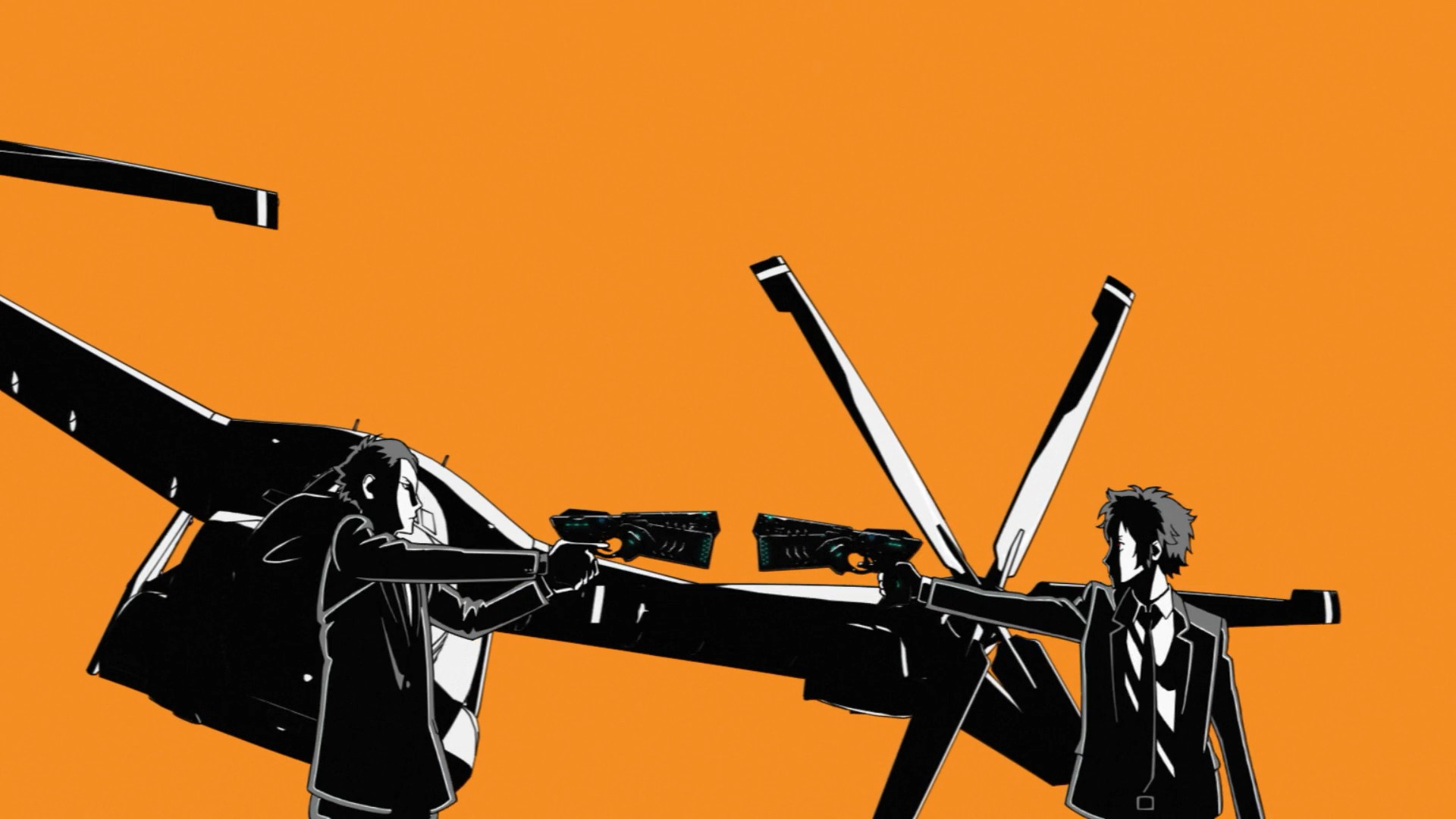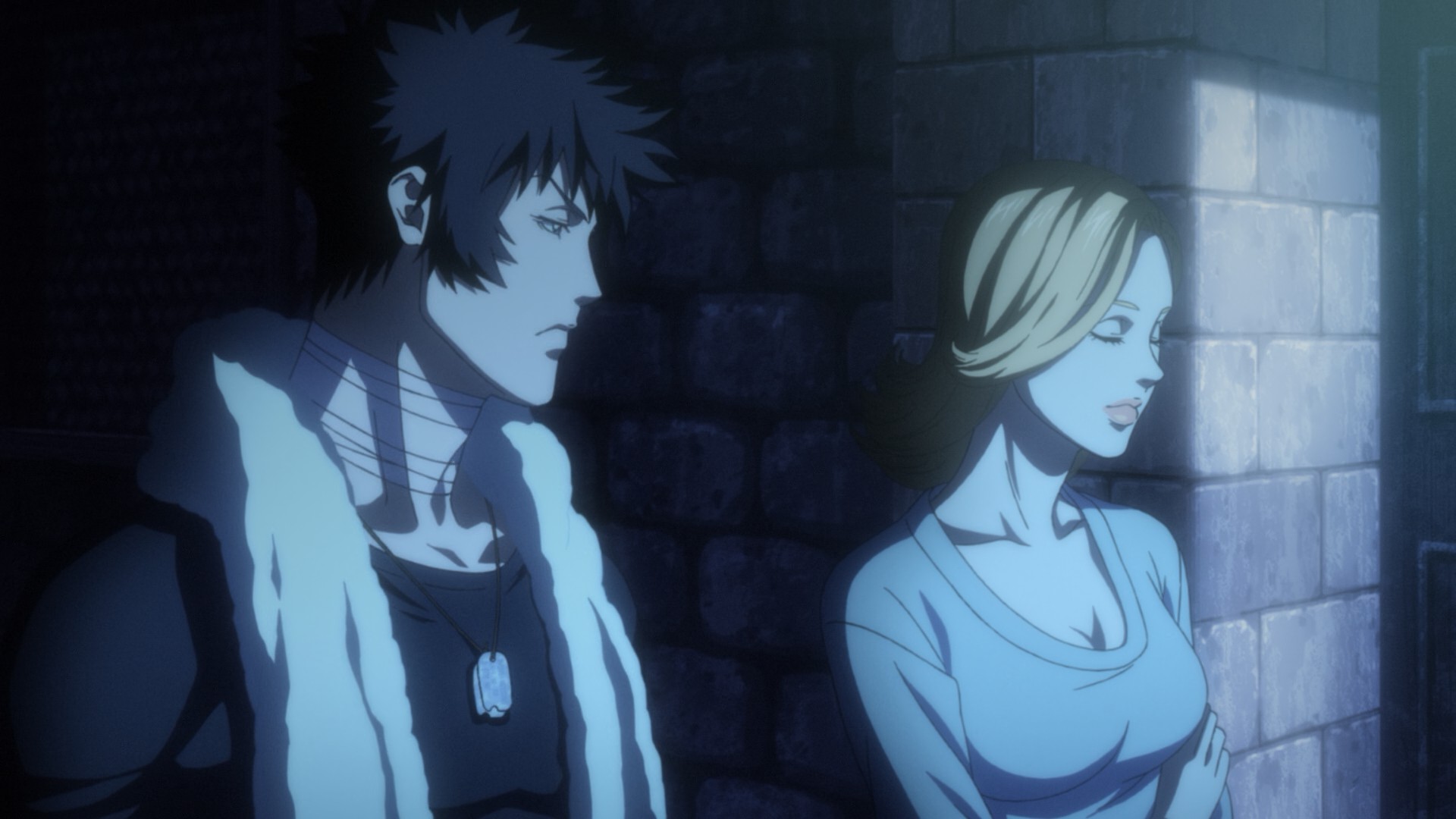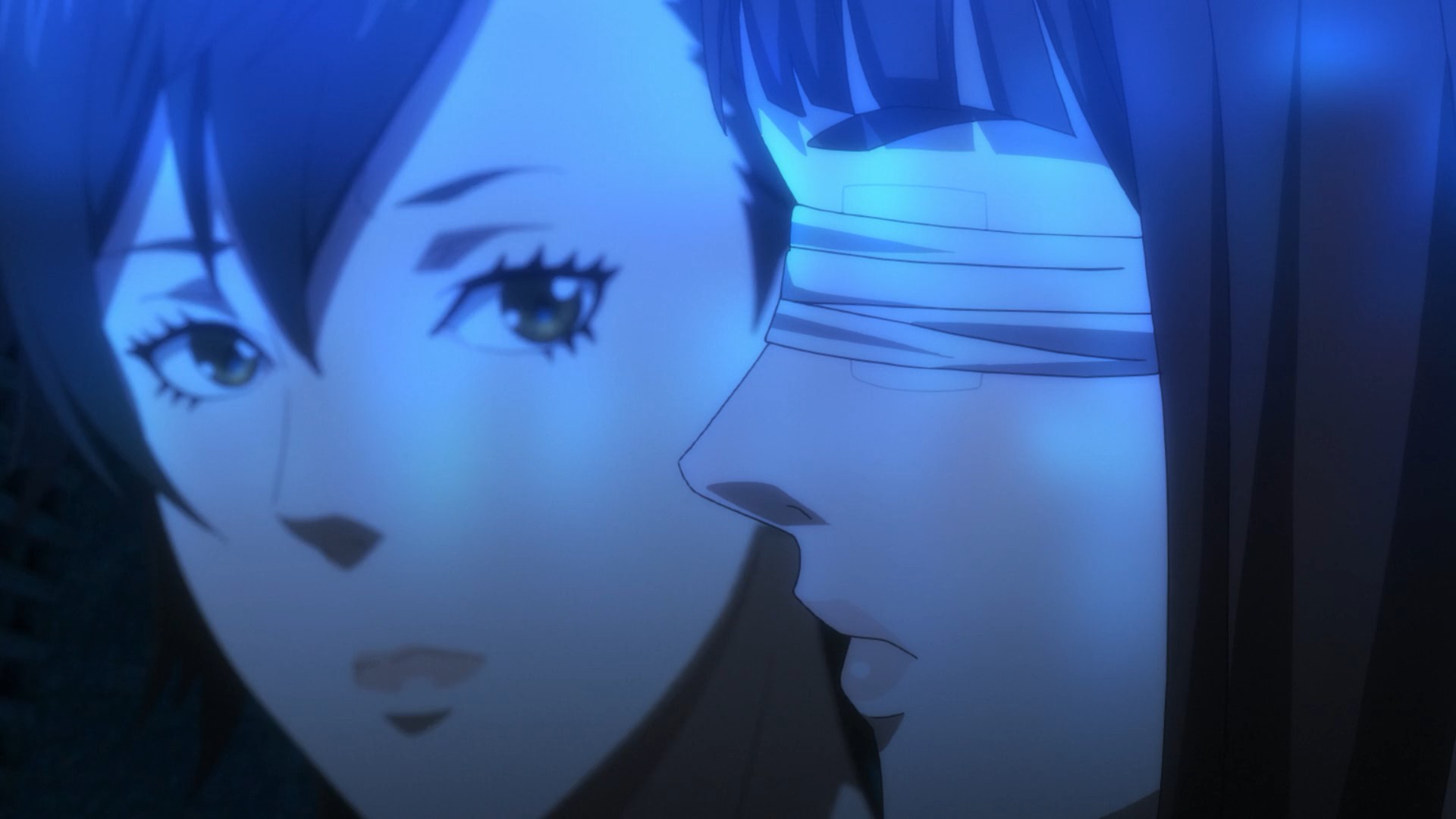Review
Psycho-Pass: Sinners of the System and Psycho-Pass 3
- First published

Not to be too cutesy about it, but the latest pair of entries in the Psycho-Pass series might as well have been crafted to represent two different psychological reactions to the narrative failure of Psycho-Pass 2. And let’s be clear, it is a comprehensive failure — in characterization, in coherence with the existing setting, in just plain common sense.
Remember that the chilling secret of the clean-cut, peaceful society depicted in the original Psycho-Pass is that, at its core, the Sibyl System that oversees it all is a vast psychological surveillance network, built on the literal minds of criminals whose crimes it could not foresee. Imagine a panopticon operated by prison escapees. Now forget about all that, because the sequel breezily hijacks the Sibyl System to serve as an ill-fitting vehicle for comparatively trivial personal vengeance. Even those greatly reduced stakes are undermined by incompetence that leaves the central conflict resembling the Keystone Cops versus the Wet Bandits.
These shattered remains of the initial premise are what Psycho-Pass 2 bequeaths to its descendants, which must figure out what to do with them. Our first contender, the three-part theatrical miniseries Sinners of the System, tries to atone for the flaws of its predecessor in an almost embarrassingly straightforward fashion. In fact, each of its cases
is seemingly engineered to address a particular missed opportunity: the first gives us a retake on new heroine Mika Shimotsuki, whose introduction Psycho-Pass 2 badly fumbles; the second does its best to redeem a previously pointless character death by undergirding it with a tragically ironic history; and the last revisits male lead Shinya Kōgami, last seen in self-imposed exile in Southeast Asia after being utterly neglected in PP2.

None of these installments have anywhere near the ambition of the original series, to be sure, and it is disappointing that they don’t do much to expand our understanding of the Sibyl System. As a series of character studies within the bounds that have already been laid down, however, Sinners acquits itself well. It is especially satisfying to finally see Shimotsuki portrayed as a proper foil to first-season protagonist Akane Tsunemori, after Psycho-Pass 2 wastes her as nothing more than a mindlessly obstructive denialist for an entire TV season. Shimotsuki’s impatience and stubbornness are still there, mind you, but they’re now placed in perspective as the sharp edges of an otherwise commendable drive to act promptly in the service of justice. If nothing else, Sinners shows that she is in fact up to the job, despite or even because of her differences with Tsunemori’s more measured approach.
This even-handed interplay, sorely missed in Psycho-Pass 2, turns up again in Sinners’ last installment in the form of new character Frederica Hanashiro, a mysterious jack-of-all-trades with the Ministry of Foreign Affairs on assignment in Kōgami’s corner of the world. Her piercing observations play well off of Kōgami’s instinct to evade direct questions and deflect from talk of his past, reminiscent of voice actor Takako Honda’s previous role as Tōko Aozaki in the (unrelated) Garden of Sinners movie series. When, in the film’s last shot — spoiler alert! — Hanashiro and Kōgami head back to Japan, it’s hard not to feel anticipation for the deepening of their relationship in the Psycho-Pass 3 TV series.
But alas, PP3 has something else in mind. Its way of confronting the mess PP2 leaves behind is… well, not to confront it at all.

For what it’s worth, scriptwriter Tow Ubukata, who returns from PP2 for a frankly undeserved second bite at the apple, turns in a better, more fully realized effort this time around. The problem is that it’s the innards of a story from some other universe shoved into Psycho-Pass’ skin. In a classic example of avoidance, Ubukata’s story does its level best not to engage with PP2 or, indeed, any of the preceding material. Kōgami and Hanashiro appear only as bit players. Even Akane Tsunemori is shoved out of the picture on a flimsy pretext. She is replaced by a rather trite pair of dudes who wouldn’t be out of place in a buddy cop flick, one of whom is a mentalist
capable of gleaning memories of past events from the people or places that were involved.
No, you didn’t miss anything — this is a character whose mere presence upends the entire basis of the Sibyl System. We’re shown from the outset that Sibyl simply does not take into account anything but the immediate present. In fact, Tsunemori’s key insight in Psycho-Pass’ very first episode is that she and her colleagues at the Public Safety Bureau must make up for this shortcoming of Sibyl’s with their own humanity and empathy, because it is they themselves who decide whether to pull the trigger and enforce Sibyl’s judgments. Having people capable of just seeing the past wrecks this whole delicate balance, and raises the question of why they aren’t part of Sibyl’s network in the first place. Two guesses as to whether Psycho-Pass 3 even acknowledges this contradiction. Oh, and once you’re done with that, note that the third season’s plot also involves subprime mortgages, open electoral campaigns, a festering refugee crisis, an opaque new religious movement, Sibyl-free zones, and an Illuminati-esque cabal wagering on it all from the shadows. It takes just a couple of episodes to basically obliterate Gen Urobuchi’s essential concept of the Sibyl System as an amoral totalitarian omnipresence. In its place, we’re left with just another wretched, ineffectual, decaying shell of a government in a ruined future that, by now, is full of them.

Adding to the frustration is the fact that Sinners of the System and the 2015 Psycho-Pass film before it offer Ubukata an easy way around most, if not quite all, of the glaring inconsistencies: just set those parts of Psycho-Pass 3 in a different country that doesn’t have Sibyl. That he didn’t even do that smacks of a lack of concern for the rest of the Psycho-Pass universe, from him up to the producers who signed off on it. The political intrigue at the heart of the story is actually serviceable as an action thriller on its own terms, so why saddle it with questions of whether a new plot element even makes sense in the continuity?
The one established thread from PP2 that Ubukata does see fit to bring back is, unfortunately, the reduction of Mika Shimotsuki’s character to a petulant wail of entitlement. In a perfect illustration of the Peter principle, this version of Shimotsuki has somehow been promoted to section chief. Oh, well. At least she can comfort herself in the knowledge that she’s not the only one involved in Psycho-Pass 3 to inexplicably fail upward.